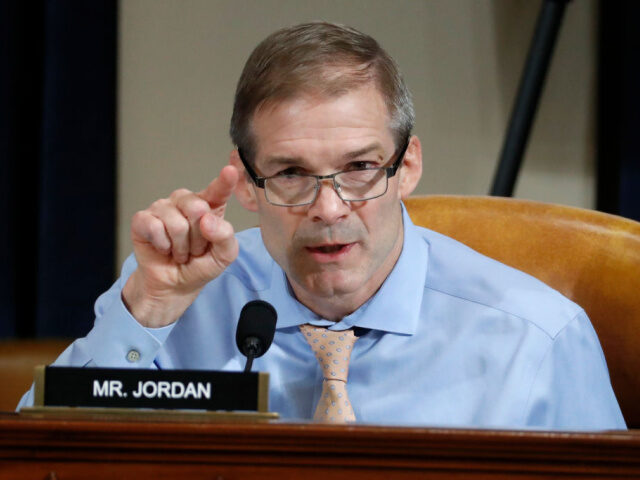House Republicans’ premier investigative panel refuted numerous claims Thursday that the FBI made in a letter about its decision to revoke the security clearances of three individuals who had approached Congress with allegations of misconduct within the bureau.
The Weaponization of the Federal Government Select Subcommittee said Marcus Allen and Steve Friend, whose security clearances were suspended by the FBI and later revoked, were retaliated against for speaking out about their concerns that the bureau had become politicized against conservatives.
The committee summarized in a 78-page interim report after months of investigation:
A recurring theme is that the FBI has violated federal whistleblower protection laws and abused its security clearance review process to hamstring the brave agents who exercise their right to make protected disclosures to Congress or who dared to question agency leadership.
FBI Acting Assistant Director Christopher Dunham laid out in his letter, written to chairman Rep. Jim Jordan (R-OH) and leaked to Fox News and other outlets in response to a subpoena, that the bureau had revoked the three clearances because of January 6-related issues.
The weaponization committee said in a statement provided to Breitbart News that the FBI was “disparaging whistleblowers” with its claims about why it revoked at least two of the clearances.
Allen, according to the FBI, had “espoused alternative theories” to coworkers to allegedly hinder the FBI’s work related to January 6 despite being told repeatedly not to.
The committee contended however that Allen, based on his testimony, was conducting “all-source analysis” per FBI orders and never instructed his colleagues “to take any specific action” based on material he shared with them.
The FBI said Friend refused to cooperate in a court-authorized arrest, “espoused an alternative narrative” about January 6, downloaded files from an FBI computer onto an unauthorized flash drive, and did not attend a required disciplinary briefing.
The committee also disputed the FBI’s justification for revoking Friend’s clearance, saying:
When Friend raised his concerns to his supervisors about the use of an FBI SWAT team to arrest a January 6 subject—who was cooperating with the FBI—Friend never refused to participate in the execution of the warrant.13 Mr. Friend’s supervisors did not even allow him the opportunity to refuse because they ordered him to take Absent Without Leave status the day of the warrant execution.
…
After learning from his supervisors that the training was a disciplinary action, he requested to have an attorney present. Friend testified that his supervisor said he “was not allowed to have one.”
Allen had possessed a security clearance for roughly 20 years and Friend had worked at the bureau for eight years — both without any known performance issues during their tenures — prior to raising concerns to Congress and subsequently seeing their clearances taken.
As for Gloss, the FBI said he appeared in a restricted area near the U.S. Capitol among protesters and “expressed support” for their “unauthorized entry” into the Capitol and support for their “criminal acts.”
Gloss has not spoken publicly about his experience with the FBI at this stage but has apparently approached Congress about it based on the FBI’s letter.
The discrepancies about revoking these former agents’ security clearances comes as part of the weaponization committee’s broader investigation into what Jordan has described as “dozens” of whistleblower allegations. Many of the allegations point to the FBI acting in a politicized manner against conservatives.
The revelations about their security clearances follow special counsel John Durham releasing a devastating report detailing that the FBI spent nearly a year wrongly probing the Trump campaign’s alleged collusion with Russia in the 2016 election, and that the intelligence community had opened the probe without possessing “any actual evidence” of the alleged collusion.
Jordan announced after the report’s release that he planned to question Durham at a hearing next week.
Write to Ashley Oliver at aoliver@breitbart.com. Follow her on Twitter at @asholiver.

COMMENTS
Please let us know if you're having issues with commenting.